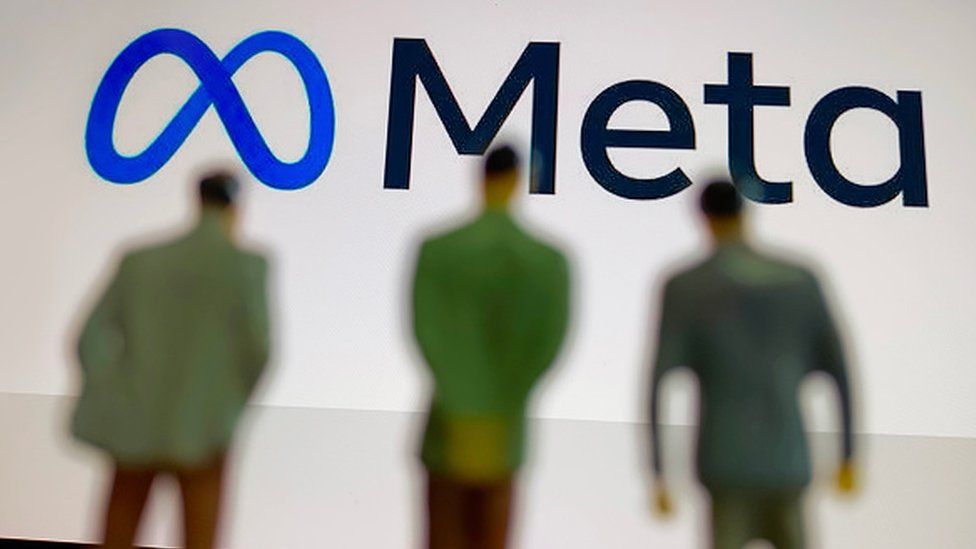OPINION
PAUL KRUGMAN
How Democrats Can Fight This G.O.P.

Credit...Christopher Lee for The New York Times
Normally, one would expect a political party that suffered severe electoral disappointment — falling far short of typical midterm gains despite high inflation and consumer discontent — to moderate its positions, to seek compromise in order to achieve at least some of its policy goals.
But the modern G.O.P., in case you haven’t noticed, isn’t a normal political party. It barely has policy goals, other than an almost reflexive desire to cut taxes on the rich and deny aid to those in need. It certainly doesn’t have policy ideas.
Republicans spent much of the election talking about inflation. But in a news conference just after securing a narrow majority in the House, top Republicans declared that their top priority would be … investigating the Biden family.
So the G.O.P. won’t help govern America. It will, in fact, almost surely do what it can to undermine governance. And Democrats, in turn, need to do whatever they can both to thwart political sabotage and to make the would-be saboteurs pay a price.
Before I get to ways Democrats might do that, let’s talk about two reasons Republicans are likely to be even more destructive and irresponsible than they might have been if the red wave they confidently expected had come to pass.
First, the very narrowness of the Republican majority in the House means that the next speaker, probably Kevin McCarthy, will need support from nearly every member of his caucus — which will mean empowering extremists and election deniers. As one former G.O.P. congressman put it, McCarthy may hold the title, but Marjorie Taylor Greene may well be speaker in practice.
You might object by pointing out that Nancy Pelosi had only a narrow majority these past two years and nonetheless managed to unite moderates and progressives behind her policy agenda. But McCarthy is no Pelosi — and progressive Democrats are infinitely more serious and interested in getting things done than MAGA Republicans.
Second, the economic environment, which was a headwind for Democrats this year, will probably (although obviously not certainly) begin to look better heading into 2024 — prompting frantic efforts by Republicans to make things worse.
Specifically, inflation seems set to fall substantially, especially because a dramatic leveling off in market rental rates hasn’t yet filtered through to official price measures. And while a recession is possible next year, it will probably be mild if it happens — and over well before the next elections.
So for the next two years we can expect Republican leaders, such as they are, to wreak as much havoc as they can, both to appease their party’s most extreme elements and to undermine what might otherwise look like successful governance by the Biden administration.
Unfortunately, Republicans will in fact have major opportunities to wreak havoc — unless Democrats use the next few weeks, during which they will retain control of Congress, to forestall them. Two issues in particular stand out: the debt limit and aid to Ukraine.
For historical reasons, U.S. law in effect requires that Congress vote on the budget twice. First, it authorizes spending and sets tax rates; then, if that legislation leads to budget deficits, it must separately vote to authorize borrowing to cover those deficits.
It’s not clear why this ever made sense. In the current environment, it allows politicians who don’t have the votes to change policy through normal procedure to hold the economy for ransom, as Republicans did during the Obama years, or simply blow it up out of sheer spite — because failing to raise the debt limit would probably cause a global financial crisis. Does anyone expect the incoming G.O.P. House to behave responsibly?
As for Ukraine, while the Ukrainians have been incredibly brave and remarkably successful in turning back Russian invasion, they need a continuing inflow of Western aid, both military and economic, to continue the fight against their much larger neighbor. But it’s all too likely that a Republican Party that takes many of its cues from Tucker Carlson will try to block such aid.
The good news is that Democrats can, as The Washington Post’s Greg Sargent puts it, “crazyproof” policy during the lame duck session, raising the debt limit high enough that it won’t be a problem and locking in sufficient aid for Ukraine to get through the many months of war that surely lie ahead. And Democrats would be, well, crazy not to do these things as soon as possible.
Beyond that, Democrats can and should hammer Republicans for their extremism, for focusing on disruption and fake scandals rather than trying to improve Americans’ lives.
Savvy political pundits will no doubt mock such efforts. But these will be the same pundits who insisted that inflation would dominate the midterms and sneered at President Biden for talking about the threat Republican extremists posed to democracy — which turned out to be an important election issue after all.
It’s a given that Republicans will behave badly over the next two years. But Democrats can both limit the damage and try to make bad actors pay a political price.
.
Paul Krugman has been an Opinion columnist since 2000 and is also a distinguished professor at the City University of New York Graduate Center. He won the 2008 Nobel Memorial Prize in Economic Sciences for his work on international trade and economic geography. @PaulKrugman
A rude awakening for the Republican Party -opinion
The Midterm election has dramatically weakened the Republican Party due to division within the party, which was largely precipitated by the result of the election.
By ALON BEN-MEIR
JERUSALEM POST

US PRESIDENT Joe Biden delivers remarks during a meeting with business and labor leaders at the White House, last week. The result of the midterm election considerably enhanced Biden’s credibility, says the writer
(photo credit: REUTERS)
The final results of the 2022 midterm election demonstrated several critical revelations. First, the majority of the American public still believes strongly that our democracy remains the bedrock of our political system and strongly repudiated political violence.
Second, whether running for reelection or for a new position, the vast majority of those candidates who questioned the results of the 2020 election or promised to overturn future election results, have generally been soundly defeated.
Third, this election has splintered the Republican Party, between those who still believe in the constitution and the principles of democracy, versus those who follow Trump and hold extremist positions, election deniers and white supremacists who are ready and willing to violate the constitution and our democratic form of government only to hold on to power.
Finally, the election has dramatically weakened the Republican Party due to division within the party, which was largely precipitated by the result of the election.
There are those who continue to support Donald Trump, the extremist MAGA Republicans who are out of touch with the American people and those constructive conservatives who view Trump as an albatross on the party and who are abandoning him. They want their party to solidify its footing and redeem itself, especially as we approach the 2024 election.

This month’s results have shown that a great majority of the country will no longer follow Trump, including Republican leaders such as former vice president Pence, who said it’s now time to move on.
Trump 2024
Although many Republican leaders have urged Trump not to run again because the future of the party is on the line, he nevertheless announced his candidacy for the 2024 presidential election, which has now further increased the pressure on many Republican leaders to decide whether to follow him or abandon him.
The reaction to Trump’s announcement was very lukewarm, from both the public in general and from the media, especially the conservative outlets who blame him for the results of this election and see him as a loser and openly condemn him for what he has done. It made the schism within the party ever greater while emboldening those who oppose him, who fear that following him any further will doom the party perhaps for a generation.
THE CONSTRUCTIVE conservative Republicans who have chosen to stick with democracy must now develop their own agenda as to how to strengthen their anti-Trump wing of the party. They must first begin to systematically deny, defy and distance themselves from the MAGA Republicans, who continue to pose a threat to our democracy.
Those who are seeking authoritarian one-party state rule in practice, along the line of Hungary’s President Viktor Orban, want to politicize the judiciary, manipulate the electoral system, abolish social security and Medicare, make dissidents powerless, control the media and tolerate violence against any opponent.
The question is, will pro-democracy Republicans eventually acquire the upper hand, and what will it take? To do so, they need to develop a constructive conservative agenda, work with Democrats whenever and wherever possible to advance socioeconomic causes and make room for compromises in the service of the national interest.
Constructive conservative Republicans
First, the constructive conservative Republicans will need to campaign against the idea promoted by election deniers of sending new slates of electors to the electoral college should they not like the results of the election.
And to engender more public support they must fight to strengthen American democracy, strongly support the rule of law, and fully abide by the result of fair and free elections, which the American public badly wants and as they have demonstrated by the result of the midterm elections.
Second, they need to show that they are willing to work with Democrats, especially because that party is in control of the Senate and White House.
Obstructionism will not work for much longer and Republicans need to show that they are willing to work for the benefit of the American people. Democrats and Republicans have collaborated on scores of legislation over the years and they can continue to cooperate in areas of critical importance to the national interest.
Third, the American people have shown in numerous referenda that there is majority support for some form of abortion access.
The constructive conservative Republicans must cease trying to implement any further legislation to ban abortion on the state level and drop the idea of a nationwide abortion ban.
Not only is this wholly unpopular across the country, but given that in the lead-up to the Dobbs decision GOP leaders promoted the idea that abortion is a states’ right issue, to turn around and call for a nationwide ban on abortion is the height of hypocrisy.
Fourth, they must not support the call to end Medicare and Social Security, calls that have been echoed for decades yet remain extremely unpopular. They must also discourage others in their party from continuously promoting unpopular ideas which will only cause further harm to the party.
Fifth, instead of merely criticizing Trump for his false statements, which are sure to explode in number and scope during his campaign, they must fact-check him and point out the truth. Refuting his lies publicly and often will restore the public’s trust and also give them an opportunity to promote their own constructive conservative agenda.
SIXTH, IT must henceforth be a given that they make it absolutely clear that they are not election deniers, repudiate those who are, and pledge that they will respect the results of future elections and will never again engage in the falsity that the 2020 election was stolen.
The proof showing that the 2020 election was legitimate is overwhelming, and the vast majority of the American people want the chaos and circus to end. It will only further emasculate the GOP if they continue engaging in this falsehood.
Finally, constructive conservative Republicans in the House and the Senate must pledge to not support any bogus investigations against Biden, Attorney-General Garland, or any other frivolous investigations, as they are solely political in nature and do nothing but distract the country from the urgent issues facing the nation.
The result of the election gave the Democrats some room to breathe and considerably enhanced Biden’s credibility. The administration must now focus on charting a new path for growth and opportunity for all who seek it while continuing to deliver on promises they have made and build on what they have achieved.
This included rejoining the Paris Climate Agreement, reversing Trump’s cruel family separation policy at the southern border, and reauthorizing the Violence Against Women Act while closing the boyfriend loophole.
And in addition to the $2.2 trillion (NIS 7.63 t.) CARES stimulus bill in the wake of the pandemic, the Biden administration passed a $1 t. (NIS 3.47 t.) infrastructure bill created a plan to forgive up to $20,000 (NIS 69,350) in student loan debt per borrower and passed the most significant gun control law in 30 years, as well as the Inflation Reduction Act.
Most importantly, the Democrats need to continue to aggressively pursue climate change and address its effects are far-reaching and causing an increasing displacement of millions of people, which is fueling a massive influx of immigration.
In that regard, the Democrats also need to continue to address immigration and search for a solution to bring immigration under control while remaining consistent with our culture and history of being a country of immigrants, which made America great and powerful.
Under Trump, the US saw, for the first time in its history, a president who challenged and violated the constitution and refused to accept the results of a legitimate election.
He was willing and very nearly succeeded in burning our democracy to the ground by plotting and executing a violent insurrection to annul the legitimate result of a free and fair election, which is tantamount to treason. And for this, he must have his day in court. This must be a very serious wake-up call for all Republicans.
Democrats and Republicans alike should be united and unequivocal to ensure that America will never again face the likes of Trump. They must commit to preserving, protecting and defending our democracy, which is the most precious value that has defined America since its inception.
The writer is a retired professor of international relations at the Center for Global Affairs at New York University (NYU). He has taught courses on international negotiation and Middle Eastern studies for over 20 years.

 GETTY IMAGES
GETTY IMAGES PHOTO COURTESY SURBHI GUPTA
PHOTO COURTESY SURBHI GUPTA







